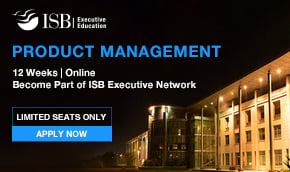What a Real Day in the Life of Product Manager Looks Like

Back in 2014, I conducted a session for final-year students at a premier engineering college as part of an academic interface program. In interactions about information technology, the students were most excited by opportunities in big data, mobile app development, cloud engineering, and business intelligence. A product manager role was still not in vogue.
Fast forward to last month, I revisited the institute, and this time, a product management career stood out. Among the usual suspects like AI, data science, product management generated the most excitement. When asked why people wanted to take up the product manager role, it was the perceived opportunity to shape innovation, collaborate across functions, and create a real-world impact. The potential for influence, a competitive salary, and strong job market growth were the additional motivating factors.
What a Product Management Career is Perceived to be
A career in product management is often referred to as that in a dreamlike Atlantis. It is a place with streams of innovation, treasures of customer satisfaction, pillars of profitability, and where ‘unicorns’ are a reality.
Furthermore, my conversations with young professionals over the past few years have revealed similar reasons to transition into a product manager role. This is also fuelled by industry demand. A 2023 report from LinkedIn’s Economic Graph shows that product management roles have experienced the highest increase in hiring, with a 49% rise for professionals holding bachelor’s degrees and a 30% increase for those with MBAs.
Surely, it does sound like a great career choice!
Far from the buzzwords, though, lies a realm of unglamorous yet indispensable aspects in the everyday life of a product manager. Just like all careers, product management has its not-so-exciting side, which is seldom spoken about. Let’s fix that, shall we?
So, let us peel back the curtain and explore some of these often overlooked and unsung product manager challenges.
Real-Life Challenges in a Product Manager Role
As a product manager, you are expected to encounter the following challenges:
1. Lack of Clear Authority
Why did the product manager bring a ladder to a meeting? They heard they needed to “climb the corporate hierarchy” to get any authority!
“In one of my earliest experiences as a PM, the team proposed a UI improvement to improve user click-through for a critical feature. The design team had some user research on board; the engineering team was all convinced. Yet our business head was ‘not very comfortable with the design change’ (sic), and we could not go ahead with the proposed change. “
While in a product manager role, one is responsible for the success of the product, one may not always have the formal authority to make decisions. PMs often negotiate roadmaps with the business stakeholders, influence UX decisions with designers, and persuade the engineering teams to have desirable delivery plans.
2. Ample of Ambiguity
Uncertainty is the only constant. Even with incomplete information, the designed solutions are meant to be complete. Even when there is clarity, you are never quite sure when things may drastically change. Still, product managers are expected to have a clear vision for the product’s direction yet be flexible and adapt to market conditions and user feedback.
A product manager role is about assembling scattered jigsaw pieces ‘in the dark’. You are never quite sure that they fit until you turn on the light and look at the proverbial ‘bigger picture.’
 3. A Quest to Balance Stakeholder Interests
3. A Quest to Balance Stakeholder Interests
Different stakeholders often have conflicting interests and priorities. PMs must find a balance between customer needs, business goals, and technical constraints, which can be a delicate and challenging task.
“A classic standoff here that all product managers experience is whether to launch a feature to meet the business deadline (make business teams happy and risk team dissatisfaction) or go for a more realistic timeline (risk cost of delay/loss of opportunity). Almost every time, product managers are tasked to find a balance.”
Do you know that product managers bring a tightrope to stakeholder meetings? That is because they knew they’d have to balance everyone’s interests and stay on the ‘line’ of sanity to make everyone happy!
4. Endless Meetings
In a product manager role, one spends a significant amount of time in meetings, from cross-functional team meetings to stakeholder presentations. One is expected to come up with well-thought-out ideas but most likely have limited time for your work.
“My personal best (arguably not so good) score is 78 meetings in a week. Though absolutely not prescribed, quite a few meetings end up being unavoidable.”
Makes you think that if there is one thing that you may want to borrow from J.K. Rowling’s magical world, it would be Hermione’s time turner, a device that helps you turn back time and make more time in a day.
5. Need for Having Thick Skin
While generating new ideas is an important part of the role, not all ideas can be pursued. A very small percentage of good ideas are pursued. PMs receive omnichannel feedback and criticism (sometimes constructive) from customers, team members, and executives. And, if the product does not fly, the product manager is the first person whose wings are clipped.
Product management is an emotional rollercoaster of high hopes, leaps of faith, sudden drops, and constant loop-de-loops, all in a day’s work!
6. Playing With Paradoxes
You want to innovate, but you also need to keep things predictable. You strive for perfection, but you have to embrace ambiguity. And most importantly, you aim to satisfy everyone while knowing deep down that even the lord almighty is still trying!
Wondering why anyone would still want to be a product manager. Well, challenges create champions, and the life of a PM is no different.
How to Overcome the Challenges Faced by Product Managers?
1. Developing Influence Over Control
Product managers learn to emphasize influence over control. When faced with a lack of formal hierarchical power, they must rely on their ability to influence and persuade cross-functional teams, stakeholders, and colleagues to align with their vision for the product. This experience consistently enhances their skill in convincing stakeholders and building consensus.
“The trick lies in the product manager being able to lay out and articulate how individual visions of the stakeholder teams connect to the larger shared objective. “
2. Ambiguity Breeds Adaptability
Dealing with ambiguity requires the ability to adjust to evolving situations, think on one’s feet, and make informed decisions in uncertain environments. This ambiguity breeds the quality of adaptability. As product managers navigate unclear paths and unpredictable challenges, they become more adept at adjusting strategies, priorities, and approaches to meet the ever-changing needs of their products, organization, and customers.
 3. Negotiating a Balance
3. Negotiating a Balance
The right balance is always stuck with skilled negotiation and prioritization. Product managers need to mediate and negotiate between various stakeholders with different priorities, goals, and expectations. In a product manager role, developing strong negotiation and prioritization skills allows PMs to effectively manage conflicting interests, maintain productive relationships, and make informed decisions.
4. Managing Time Better
As PMs navigate numerous meetings, they learn to allocate their time efficiently to ensure that they have enough time for strategic thinking, decision-making, and execution of tasks. With time, they become skilled at setting priorities, delegating when necessary, and managing their schedules effectively. This ensures focus on critical tasks amidst a busy meeting schedule. Effective time management enables a harmony between responsibilities and productivity in a demanding role.
5. Building Resilience to Criticism
Having a thick skin builds the quality of resilience in a product manager role. Product managers encounter frequent criticism, setbacks, and challenging situations in their roles.
“At least 70% of product experiments are known to fail. What matters is that in the face of adversity, the ability to handle tough feedback constructively, stay motivated, and lead their teams with determination. Resilience enables them to persevere and remain effective in a demanding work environment.”
6. Managing Paradoxes Creatively
Paradoxical expectations build the skill of creative problem-solving in a product manager. When faced with conflicting demands, product managers are often challenged to find innovative and out-of-the-box solutions. They are pushed to understand the business, the market, the technology, and the consumer deeper and better.
“During the first COVID lockdown in March 2020, our education product served 1500+ schools in India. A sudden lockdown meant an abrupt stop to schooling. Our product was designed for at-school learning. Within one week, we pivoted and solved the existential problem first, delivering lessons remotely to students. Followed it up by enabling schools to conduct exams online and then created a seamless platform for online school management. This not only enabled schools to complete the ongoing academic year but also start the new one on time.”
Thus, in the most unprecedented of times, we unconventionally innovated to create the ultimate impact for our customers.
As a product manager, the allure of creativity and impact is often contrasted with the weight of endless priorities and paradoxical stakeholder expectations. It is abundantly clear that this role is not for the faint-hearted. You face a lack of clear authority but hone negotiation skills, thrive in ambiguity with adaptability, and master the art of balance through negotiation. Endless meetings teach you effective time management, and paradoxical expectations foster creative problem-solving. All this, along with the ability to take strong feedback, builds the invaluable quality of resilience onto your persona.
Product managers are the modern-day techno-voyagers, charting the course between our reality and the Atlantis of dreams!
Write to us at content@emeritus.org
NOTE: The views expressed in this article are those of the author and not of Emeritus.




